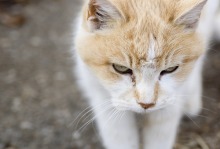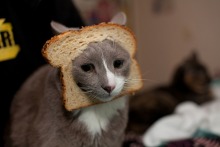Tips on getting your cat to scratch in the right places
You love your feline friend. You even love the many quirky things she does. However, you don’t love the way she scratches your furniture. Yet, you are against having her declawed for many reasons. What do you do?
First, you must understand why cats want to scratch the furniture and everywhere else. No, it isn’t just to sharpen their paws or to help them shed that outer nail layer that they have. They want to scratch to leave their mark and to tell other cats that this is their territory.
Scratching is also an exercise for your cat. It stretches out their shoulder muscles, the tendon of her paws, and the muscles in their forelegs. This is all beneficial to your cat and a reason why she should scratch. However, she needs to learn where to scratch and it is our duty as cat owners to teach her where this place is.







